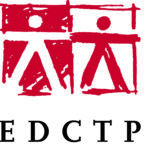This call (ICT-53-2020), which aims to qualify and characterize the latest version of 5G available in the context of its implementation in the context of complete ecosystems enabled for connectivity around cars and vehicles, is part of the Information and Communication Technologies sub-programme of the H2020 Programme.
The challenge is to qualify and characterise the latest version of 5G specifications as available from 3G PP release 16 early 2020 (5G NR-V2X and beyond) in the context of advanced use cases deployment in Europe of CAM that may also benefit from Artificial Intelligence (AI) solutions. It targets use cases beyond C-ITS safety applications in view of enabling use cases in the context of complete connectivity-enabled ecosystems around cars and vehicles. It supports the realisation of the strategic objective of having all major transport paths covered with 5G connectivity by 2025 through cross-border trials along major transport paths planned for CAM deployment (“5G corridors”) and paves the way towards operational deployment as envisaged with the Connecting Europe Facility proposal. The work is also relevant to cross border railway corridors in view of providing services to trains, including in the context of the planned Future Railways Mobile Communication Systems (FRMCS) planned to replace GSM-R around 2030.
Ámbito de aplicación
The validation of the latest available 5G specification in the context of innovative CAM applications under realistic conditions and seamlessly functioning across borders. This is realised through cross-border trials along 5G corridors covering significant portions of roads or railways and including the core technological innovation expected from 5G release 16 including positioning services, or beyond. Relevant work takes a broad innovation perspective covering use cases in the vehicle-to-vehicle (V2V), vehicle-to-infrastructure (V2I), vehicle-to-pedestrian (V2P), and vehicle-to-network (V2N) domains including the supporting service infrastructure.
The work is also expected to provide a clear co-existence between multiple technologies (IEEE 802.11p, C-V2X, 5G-V2X) and migration path towards the use of 5G as the technology for CAM. It targets implementation across different business domains through coverage of cross border 5G corridors as supported by groups of neighbouring Member States. Projects should complement the deployment plans for the 5G CAM trials along the cross-border corridors in scope of the project with long-term roadmaps for the deployment of the 5G infrastructure along the relevant corridors in view of larger-scale testing and early introduction of 5G-based CAM services along these corridors.
The work may include advanced services on board of international trains covering passenger services, train traffic management services, as well as other operational services in preparation for the advent of the FRMCS, including migration from previous generation issues (GSM-R) and spectrum sharing aspects. Aspects of service and infrastructure sharing or coordination for both the automotive and railway use cases, notably in cities, is in scope, as well as multimodal solutions for passengers with the view to offering business continuity to users of the different means of public and private transportation.
Expected impact
- Validation of latest version of 5G technologies and architecture in a CAM context, including validation of innovative business models and applicable standards.
- Validated cost/benefit analysis of cross border 5G deployment enabling CAM along 5G corridors potentially including several business domains.
- Characterisation of 5G Release 16 or beyond for the most advanced CAM use cases (see through, sensor sharing, high density platooning, etc.) including innovative spectrum use.
- Validation of sustainable models combining 5G and AI features to support most advanced CAM use cases.
- Technological validation of 5G introduction for train/railways use cases including FRMCS aspects, migration, spectrum, and co-existence issues with the automotive case.
- Development of a sustainable model for a pan-European cloud infrastructure supporting CAM services at European scale.
- Support to sustainable deployment models paving the way towards deployment actions across pan European 5G corridors envisaged for CEF Digital.
- Participation of key European industrial partners of both the ICT and the automotive sectors and with high standardisation impact is desired.
Deadline
November 13, 2019






Leave a Reply